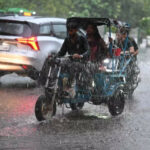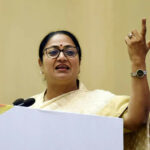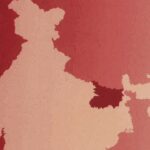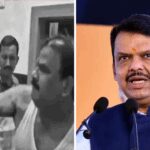This is an audio transcript of the Rachman Review podcast episode: ‘Can the Olympics cure France’s malaise?’
Gideon Rachman
Hello and welcome to the Rachman Review. I’m Gideon Rachman, chief foreign affairs commentator of the Financial Times. This week’s edition is about France and the Olympics.
Before we begin, we’d love to hear a bit more about you and what you like about the show. We’re running a short survey, and anyone who takes part before August the 29th will be entered into a prize draw for a pair of Bose QuietComfort 35 wireless headphones. You can find a link to the survey and terms and conditions for the prize draw in our show notes, and I’m assured the link now works.
My guest this week is Sylvie Kauffmann, editorial director of Le Monde and a frequent columnist for the Financial Times. The Olympics opened against a backdrop of torrential rain, security fears and political instability. But the mood has altered as swiftly as the weather. So can the Olympics boost France and President Emmanuel Macron?
[AUDIO CLIP OF THE 2024 PARIS OLYMPICS’ OPENING CEREMONY PLAYING]
Gideon Rachman
The Olympics opening ceremony in Paris was spectacular and rain-soaked. It was also controversial. The Conference of French Bishops criticised the ceremony for including what they called scenes of derision and mockery of Christianity. But the mood of the Olympics always picks up when the host country starts winning gold medals, and the French rugby sevens team and its star player, Antoine Dupont, delivered in style on the opening Saturday of the Games in front of a packed Stade de France.
Sportscaster voice clip
. . . by Rasaku, another penalty. Riva and Dupont. They want to go. They want another one. As time starts to tick, 90 seconds to play! It’s long. Dupont! Who else? What a man for a big occasion. May have just helped seal the deal.
Gideon Rachman
But there’s still some lingering nervousness around the Games. Just before they opened, there was a successful sabotage of the high-speed railway links leading into Paris. At a moment of political flux, Emmanuel Macron and France as a country need these Games to be a success. So I started my conversation with Sylvie Kauffmann by asking her about the current mood about the Games in France a few days into the contest.
Sylvie Kauffmann
The mood shifted overnight. I think with the opening ceremony on Friday night, suddenly people stop whining and moaning and being overly pessimistic about the organisation of these Olympic Games in Paris. And now it’s turned to sheer enthusiasm, not only in Paris, but overall in France. I think you can hear it in the media, on the radio, on TV. I mean, there’s really a lot of energy coming from these Games and a lot of enthusiasm.
Gideon Rachman
Yes, it reminds me a little bit of being in London in 2012 when, again, there was a lot of scepticism and nervousness that the whole thing was going to be a disaster. But once it started, people really became enthused.
Sylvie Kauffmann
Yeah, everybody was saying that the public transport wouldn’t work, that restaurants would be overcrowded, that hospitals would be overwhelmed, and nothing of this is happening. I mean, there are a lot of tourists around in the metro. It’s working perfectly. There are volunteers all over the place, and it’s very nice, actually.
Gideon Rachman
And one thing that strikes me from a distance is the way in which they’re using the most famous sites in Paris as a backdrop. So you have the Eiffel Tower, the Place de la Concorde, the Grand Palais, all of them being utilised.
Sylvie Kauffmann
Yes. I think that was very clever from the organisers. It was a gamble, I guess. I mean, this is a normal city. It’s a packed and quite dense city. And in fact the backdrop of all these wonderful places and this architecture is stunning. I mean, having the fencing competition within the Grand Palais, you know, with this grand architecture all over, and the horse riding competition in Versailles with the castle and the royal park, and the sun is shining finally. And so I think people are enjoying not only the sports and the competition, but also the sight of Paris, which is a beautiful city.
Gideon Rachman
Absolutely. I think these cities can be an incredible backdrop. It reminds me of seeing the equestrian in London, in Greenwich Park, and it was the same. You suddenly had a sense of the beauty of the city. But again, another parallel with London was the kind of simultaneously very warm reception for the opening ceremony, but also a degree of controversy, because here in London a lot of people loved it. But some people, conservatives particularly, found it overly progressive. There was too much for them about immigration, about the National Health Service. And it seems to me there’s been a similar kind of mixed reaction to the Paris opening ceremony. So what was that all about?
Sylvie Kauffmann
Yes. This comparison with London is very interesting because there has been controversy, I would say mostly about this performance of this singer almost naked, his body painted in blue with the drag queens behind him. The religious leader and conservative commentators said it was an insult to Christianity because they said it was inspired by the Last Supper and this famous painting of Leonardo da Vinci. But actually, Le Monde’s art critic made a very thorough research on this and talked to the director of the show. And it appears that his inspiration was not the Last Supper at all. It was a series of paintings of the 17th century, and even from Caravaggio and other painters about Dionysus. So Bacchus for the Romans, you know, the Greek god of feast and wine. And if you look at the paintings he refers to, yes, the inspiration is very clear. So the reference is to a pagan feast, not to Christianity.
Another criticism was that it was a kind of a woke view of French society. But I think, you know, there was a poll which said that 86 per cent of the French approved of the ceremony and thought it was nice and they enjoyed it and they liked it. So I think that’s the answer to the criticism. You may say that it was a very western kind of aesthetic and vision of a free society, but I mean, this is Paris and this is France, and I think it was also in a way a response to all the attacks also that this city and this country has been through. It reminds me of after the terrorist attack of 2015, you know, on Charlie Hebdo and then the Bataclan people made a point of sitting at terraces of café, because that’s when the terrorist attacks also had been happening, of saying just to be Charlie, you know. So I think this is also a kind of defiant stand from the organisers, I think. And I think the French understood it.
Gideon Rachman
Yeah. I mean, very interesting that you should say that 86 per cent approval of the opening ceremony, because, again, it was very noticeably a celebration of a multicultural France. And I would have thought that would have, and probably did antagonise the far right too. After all, getting north of 30 per cent in elections, and I think Marion Maréchal-Le Pen was not pleased.
Sylvie Kauffmann
Yes, you’re absolutely right. But interestingly enough, the one who protested was not Marine Le Pen herself, the leader of the Rassemblement National, but her niece, Marion Maréchal-Le Pen, who is much more socially conservative than she is. But I think that is very clever to have Aya Nakamura, this Franco-Malian singer, with the Republican Guard band swinging beside her. This was really, I think, very, very clever because, you know, the Republican Guard is really the essence of French tradition. And so I think people understood that and the humour behind it, and it was well-executed under pouring rain. So I think it was finally understood.
Gideon Rachman
Yeah. And as you say, almost unavoidably, these Olympics opening ceremonies are a way in which countries both sort of consciously and unconsciously make a statement about themselves to the world. So, you know, the one that’s probably most memorable, I remember actually being in France and watching the Beijing opening ceremony in 2008 with a thousands of drummers, and it was very visually impressive, but also slightly alarming from western eyes because it was so regimented and so perfect. And I think that the London ceremony was in part a response to that. We had, I think, disabled people drumming on rubbish bin lids as a, I think a deliberate reference to that. I mean, presumably they leave the designer of the ceremony pretty much to his own devices. But do you think that there was a kind of conscious political message embedded in that?
Sylvie Kauffmann
You know, you mentioned diversity or immigration and the Rassemblement National. What is also interesting in what’s happening now in France is that the French are very happy because they’ve been collecting a lot of medals, at least in the first three days. But many of these athletes are either children of immigrants or from West Indies, and they are so popular, they are extremely popular even before the Olympics. This is also France, you know. Of course, you had this latest election with the 30 per cent forward going to the Rassemblement National. But you may argue that immigration may not have been the main reason for this vote. You know, it’s a different event. And I think this is also why it is important, the success of these Olympic Games.
Gideon Rachman
Yeah. I mean, of course, inevitably not everything goes right. And, you know, we’re speaking I think the morning that the triathlon has had to be postponed because this very expensive exercise to clean up the Seine, it isn’t quite clean enough to swim in. I guess that was a high-stakes gamble. We’ll see whether it comes off or not.
Sylvie Kauffmann
Yes, it is a problem. This cleaning of the Seine, as you said. It was extremely costly. It wasn’t done apparently only for the Olympics. It also has an environmental reason. But yes, this might be one of the negative features of these Games. You’re right.
Gideon Rachman
Yeah. And of course, I mean, I’m afraid I can’t stop with the London parallels, but the pollution of rivers is a huge issue here in the UK, and I certainly would not advise anybody to swim in the Thames. In fact, I remember when one of my kids fell in while rowing in the Thames and was immediately taken to hospital to be checked out for possible diseases. So I guess cleaning a big urban river like this Seine is a huge undertaking.
Sylvie Kauffmann
I hope the athletes don’t have to be taken to hospital.
Gideon Rachman
Yeah, well, I guess it would be quite bad publicity. But one other thing still hovering over the Games, one of the reasons I think people were nervous was that the night before, I think there was the sabotage of the railways. Do we know what happened there yet?
Sylvie Kauffmann
Not completely. I mean, the investigation is going on. A statement has been sent to several news rooms coming from an unknown group opposed to the Olympics, opposed to high-speed trains, to police crowd controls. It is being investigated, but the link with the actual perpetrators hasn’t been confirmed so far. The police seem to think that it’s probably the work of an ultra-left group or groups, but what they haven’t determined so far is whether that group would have been manipulated or was acting for its own benefit. This is not clear so far.
Gideon Rachman
Yeah. I mean, I guess it says something about the slightly nervous atmosphere in which modern France has to live, that when it happened, one could immediately think of maybe three potential suspects: Islamists, the Russians or the far left. And I guess they would all have to have been considered.
Sylvie Kauffmann
Yes, of course. And I’m sure the police is taking all these possibilities into account. You know, I wouldn’t say there is a high sense of insecurity at the moment in France, but there is definitely a high sense of awareness of the terrorist threat. And as I said earlier, there has been many terrorist attacks for the past nine years or so, and I think people are just totally aware of this possibility and have learned, as I’m sure in Britain also, and in many western societies and not only the western, actually, we have learned to live with this.
Gideon Rachman
So, I mean, I wonder even before this about the strain on resources for French police, because they’ve been on a state of high alert for many, many years now, ever since the Bataclan and then the other terror incidents, and then of course, the gilet jauntes and the riots around that. They must be pretty exhausted or there must be an enormous number of them.
Sylvie Kauffmann
It is an issue because, as you said, they have been on the frontline for many years. And we also have a big crisis in New Caledonia, in the south Pacific. So the security forces’ reinforcements have been sent there and of course, the Olympics, the elections. So, yes, I know that for the Minister of Interior, this is a huge challenge. Police forces have had no summer holidays so far, but they are mobilised. And the interesting thing also is that in Paris at the moment, the policemen are patrolling with other police forces from different countries. You know, they are helping to organise security around the Olympics from different European countries and even beyond Europe. And there’s a very nice atmosphere also among them. You know, they are smiling, they are extremely courteous. And this is another very welcome change in Paris, I have to say.
Gideon Rachman
Yeah. And I mean, I guess France could do with the boost because there was just a few weeks ago, this very fraught election. And many ways of interpreting it, but one of them was a big backlash against the establishment, against Emmanuel Macron and so on. It’s very hard to tell. And I guess the mood shifts are always very ephemeral. But do you think the Olympics can get the French feeling more positive about their country generally?
Sylvie Kauffmann
That’s a good question. It might. I’m not sure it will last very long. I think the French malaise is deeper than a few weeks of nice Olympic Games can fix. But Macron has definitely taken a hard beating over these past few weeks. He’s become very discreet. He’s actually now taking a short summer break in Brégançon, the presidential villa on the Riviera, and he has called for a politic and Olympic truce. So in fact, he wants people to have a short break also and enjoy the Olympics. I think behind the scenes, the search for a new prime minister and trying to build some sort of coalition is going on, but it’s slowed down, definitely.
And Macron I’m sure, is active behind the scenes, but he’s not showing it. He’s not making any public statements about domestic politics. He said he would not appoint a new prime minister before mid-August. This phase of the Olympic Games is ending on August 11th. Then we have this holiday of August 15th. So by mid-August, I think the political activity will resume, even though there are still the Paralympic Games. But expect some renewed heavy political activity and fighting.
Gideon Rachman
Is there any sign that this deadlock in parliament can be broken and they can find the coalition that’s able to sustain itself?
Sylvie Kauffmann
There’s no concrete sign at the moment, but they will have to find a way, because budget has to be passed by parliament in September. So they will have to find some sort of solution, which may be shortlived. You know, there may be one government appointed and then it may be censored in parliament, and they will have to appoint a new one. This is really a completely new landscape, a new situation for French politics. So I think there will probably be several trials.
Macron also has to get used to the fact that the president of the republic now is not the only centre of power in France, the political activities in many ways going to be transferred to the parliament. So everybody has to get used to this new situation and it’s not going to be easy. I mean, the leftwing alliance has put forward a candidate for prime minister, but it’s a young woman who is a civil servant in the town hall of Paris. You know, it’s not very plausible that she will be the next prime minister. I think Macron is still looking for ways to find some sort of coalition or agreements around the centre-right forces. We’ll see what happens. But it will probably take some time, still.
Gideon Rachman
Yeah. And I mean, I’m interested that you say it has to be resolved by September because I used to live in Belgium and I think they once managed without a government for more than a year. But you don’t think that can happen in France?
Sylvie Kauffmann
Yes. You know, France never had this kind of scenario before. You can see that the political parties are not used to this. They don’t know how to deal with this. They don’t know how to negotiate compromises. They will have to. But it’s easy to see why they can’t do it overnight. I mean, they have to get used to talking to each other and making concessions and negotiating. It will take some effort.
Gideon Rachman
Now, last question, because you’ve written an excellent book on France, Germany and Russia and all their approaches over how to deal with Putin over the many years: where do you think that stands now? Because shortly before the legislative elections, Macron, who’s always imaginative, was suddenly becoming much more hawkish on Russia, even talking about maybe sending French troops one day to Ukraine. And I guess whatever the reality is or not of that proposal, it still suggested that France saw itself as a leader on this issue and as a leader in Europe.
Do you think that France is capable, at the moment, of rediscovering that sense of leadership? Maybe you’re kind of inspired by the Olympics, if that’s not too fanciful. Or is France now in for a long period of introspection?
Sylvie Kauffmann
Yeah. I don’t expect the Olympics having that much influence about France’s diplomatic strength. But this issue has been very much put on the backburner, even though it has still as much urgency as before on the front line and in Ukraine. But of course, the domestic politics in France took over. And also, I think Macron’s influence abroad, I mean, among his peers in Europe particularly has suffered from the beating he took in the elections. This idea of sending French military instructors, for instance, to train Ukrainian troops in Ukraine hasn’t been mentioned for more than a month now. It doesn’t mean that it’s completely forgotten, but I don’t see France pushing it too far at the moment, or Macron pushing it too far at the moment because he’s got other things on his mind right now.
But I think the line that he put forward earlier this year — since February, actually — will stand. I think it’s not a line he can go back on. And it was fairly consensual in France. So it should hold. But now we have to also take into account what the situation is going to be elsewhere. What will happen in the election in the United States, what will happen elsewhere in Europe? So it’s not only the French position that matters on this right now.
[MUSIC PLAYING]
Gideon Rachman
That was Sylvie Kauffman of Le Monde, speaking to me from Paris and ending this edition of the Rachman Review. Please join us again next week.





